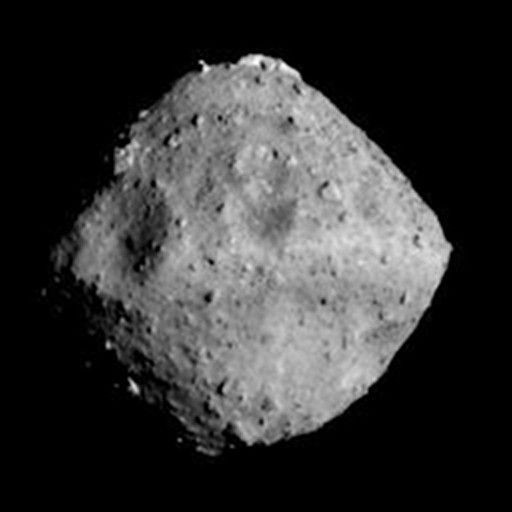Hayabusa-2 Returning To Earth With Piece Of Ryugu Asteroid

After spending over a year with the near-Earth asteroid Ryugu, Japan’s Hayabusa-2 probe is getting ready to end its mission. The probe is expected to return to Earth carrying valuable samples taken from the asteroid.
Hayabusa-2 was officially launched by the Japan Aerospace Exploration Agency (JAXA) on Dec. 3, 2014. It reached the asteroid, which measures about 3,280 feet wide, on June 27, 2018, after traveling a distance of 186 million miles. Since then, Hayabusa-2 has been flying with Ryugu to study the asteroid and its composition.
Earlier in April, the probe, which is only about as big as a refrigerator, fired an impactor into the asteroid to disturb its surface. The move was conducted in order to expose the asteroid’s inner materials to the atmosphere. After over a year, JAXA is now preparing to return the probe back to Earth.
"I'm feeling half-sad, half-determined to do our best to get the probe home," Hayabusa-2’s project manager Yuichi Tsuda said according to Science Alert. "Ryugu has been at the heart of our everyday life for the past year and a half.”
Hayabusa-2 launched off the surface of the asteroid on Wednesday morning. It is expected to break free from the asteroid’s gravity on Nov. 18 to begin its journey back to Earth. JAXA expects the probe to land sometime in December 2020.
According to JAXA, Hayabusa-2’s return trip will be much shorter compared to its first voyage since Ryugu is currently closer to Earth than its previous position in 2014.
Scientists working on Hayabusa-2 are looking forward to studying the samples the probe has collected from the asteroid. According to Tsuda, the samples contain organic and carbon matter from Ryugu. He and his team are hoping that these samples will provide valuable information as to how cosmic materials scattered in space end up on asteroids.
Tsuda noted that studying the samples could also reveal if materials taken from the asteroid match those found on Earth. If they do, the Hayabusa-2 sample-return mission would provide a deeper understanding regarding planetary formations.
"We expect Hayabusa-2 will provide new scientific knowledge to us," Tsuda said.
© Copyright IBTimes 2024. All rights reserved.





















